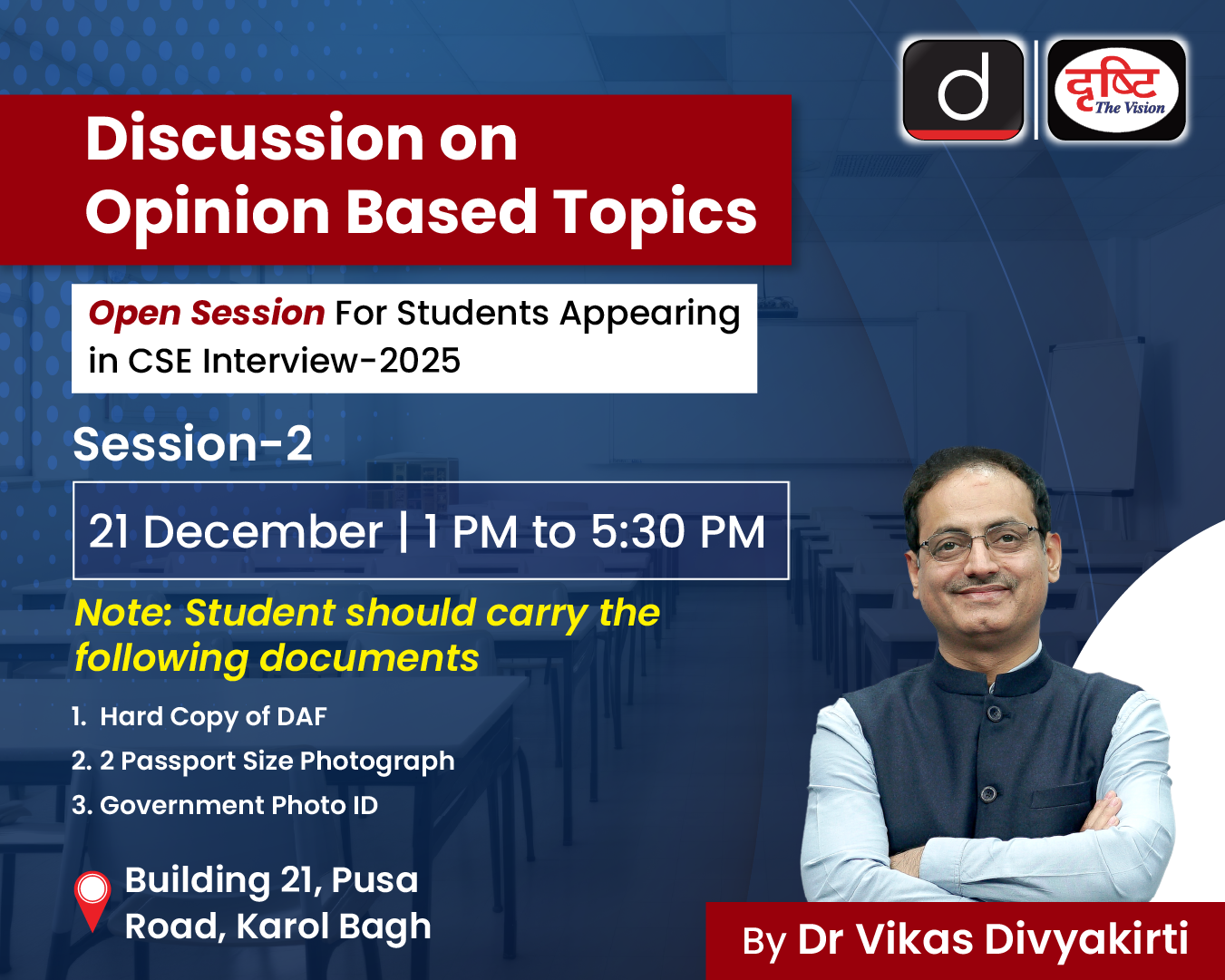-
09 Aug 2023
GS Paper 4
Theoretical Questions
Day 21: What does the following quotation mean to you?
“Evil unchecked grows, evil tolerated poisons the whole system.” (150 words)- Start the answer by introducing quotation meaning.
- Discuss what if evil is unchecked and tolerated.
- How to check evil in society and for civil services.
- Conclude accordingly.
Answer:
This quote highlights the idea that when immoral or harmful actions are not confronted or addressed, they can escalate and cause widespread harm to individuals, communities, and societies.
if evil is unchecked and tolerated:
- Escalation of Harm: When evil actions go unchecked, they tend to escalate, causing increasing harm over time.
- For instance, if workplace bullying is tolerated, it may lead to a toxic work environment, affecting the well-being of many employees.
- Erosion of Moral Compass: Tolerating evil behavior weakens society's moral fabric, making it easier for others to engage in similar acts.
- For example, if corruption within a government is overlooked, it can encourage further corrupt practices among officials.
- Loss of Trust: When evil actions are tolerated, trust in institutions and individuals diminishes. This can lead to a breakdown of societal cohesion and increased conflict.
- An illustration is when police brutality incidents are ignored, it erodes trust in law enforcement.
- Normalization of Evil: What was once considered evil can become normalized when it goes unchallenged.
- An example would be hate speech on social media platforms; if not moderated and sanctioned, it can become a regular part of online discourse.
- Negative Impact on Vulnerable Groups: Evil actions that are not addressed often disproportionately affect vulnerable populations.
- For instance, systemic discrimination may persist if not confronted, leading to ongoing harm to marginalized communities.
- Spread of Contagion: Evil, like a contagious disease, can spread when it goes unchecked.
- If extremist ideologies are tolerated without opposition, they may attract more followers and create greater social division.
- Loss of Innovation and Progress: When evil is tolerated, people who could contribute positively to society may be discouraged or silenced.
- For instance, a toxic work environment may discourage talented employees from sharing innovative ideas.
Need to check evils in society:
- Promote Ethical Education and Awareness: This can raise awareness and foster a sense of responsibility to counteract evil behavior.
- Example: Implementing comprehensive ethics education in schools and community centers to teach individuals about moral values, empathy, and the consequences of harmful actions.
- Encourage Active Bystander Intervention: By empowering bystanders to take action, they can prevent evil from going unchecked.
- Example: Encouraging individuals to speak up and intervene when witnessing acts of injustice, discrimination, or violence.
- Foster a Culture of Open Dialogue: Open conversations can help challenge harmful ideologies and encourage mutual understanding.
- Example: Creating safe spaces for discussions on sensitive topics, allowing people with diverse perspectives to engage in constructive dialogue.
- Support and Amplify Positive Role Models: By highlighting positive role models, society can inspire others to follow their example and counteract evil with virtuous actions.
- Example: Recognizing and celebrating individuals and groups who promote kindness, compassion, and altruism.
Need to check evils in civil services:
- The Second Administrative Reforms Commission (ARC) in India made several recommendations for civil servants to enhance their efficiency, integrity, and overall performance.
- Performance Appraisal and Merit-Based Promotions:
- The ARC recommended introducing a transparent and merit-based performance appraisal system for civil servants.
- Strengthening Training and Capacity Building:
- The ARC emphasized the need for continuous training and capacity building of civil servants to keep them updated with modern administrative practices, technology, and public service delivery methods.
- Citizen-Centric Approach:
- The ARC recommended shifting towards a citizen-centric approach in public service delivery.
- Promoting Integrity and Ethics:
- The ARC emphasized the importance of promoting integrity and ethical conduct among civil servants. This includes strict enforcement of codes of conduct and measures to prevent corruption.
- Flexibility and Innovation in Governance:
- The ARC suggested promoting flexibility and innovation in governance to meet the challenges of a rapidly changing world.
Therefore, it is crucial to address and confront evil proactively, fostering a culture that upholds values of compassion, accountability, and empathy to prevent its insidious growth and safeguard the well-being of all.





